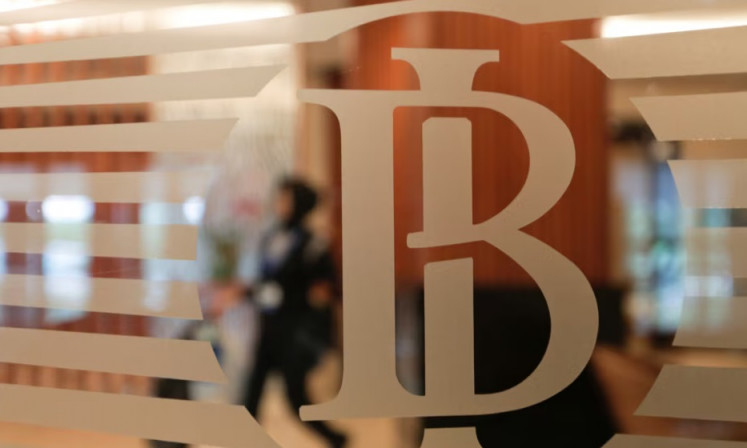Popular Reads
Top Results
Can't find what you're looking for?
View all search resultsPopular Reads
Top Results
Can't find what you're looking for?
View all search resultsAccess to clean Water: A problem for Indonesia
Access to clean water is one of Indonesia's biggest problems
Change text size
Gift Premium Articles
to Anyone
Access to clean water is one of Indonesia's biggest problems. According to the Millennium Development Goals (MDGs) Report 2007, published by the National Development Planning Board, piped water is accessible to 30.8 percent of households in the country's cities and 9 percent in its villages.
Such figures show the limitations of the municipality's water service provider, PDAM.
Lack of investment in clean water is one reason PDAM gives for its limited outreach. Based on a government statement, to meet the MDGs target by 2015, Indonesia needs Rp 43 trillion (US$4.6 billion) in clean water funding. The government currently provides Rp 500 billion.
In order to close the funding gap, the government expects private investment in drinking water infrastructure.
Attracting private investment in clean water is no easy task. Between 1990 and 2006, there were only 26 collaboration projects between PDAM and private firms.
These public-private partnerships have only occurred in big cities and industrial areas. Whether the partnership has delivered the efficient and effective service improvement it promised is debatable.
Some say the public-private partnership can not be implemented because of legal complications. Also, the private sector needs a guaranteed return on its investments. On the other hand, clean water infrastructure is not as appealing to investors as energy and telecommunications.
The need for clean water funding is something that cannot be covered by private investment. In Indonesia, most PDAM utilities have small scales of economy and are therefore unattractive to investors.
There is no evidence to suggest private investors will improve the efficiency and effectiveness of water services, whereas the government has a duty to do so.
Increasing public funding for clean water infrastructure is the most rational approach for Indonesia. This effort should begin with an analysis of the needs of locals. This should be done through a democratic and participatory process.
There are resources and mechanisms the government could employ to increase clean water funding, such as state and local budgets, grants, government bonds and community-public partnership.
In order to use a grant system, the government should improve its proposal management and clearly focus on real needs in order to widen clean water services.
PDAM could use existing funds more efficiently. If it could reduce leakages from 40 percent to 20 percent, it would have more disposable funds to invest in infrastructure. PDAM should use cost recovery principles, as long as costs are not passed on to consumers. Cost recovery principles should also be supported by a proper subsidy mechanism.
Bond investing is a traditional lending instrument for public services. The mechanism needs conditions, such as strong capital structure at local level.
Community-public partnership is the most realistic mechanism that can be implemented by PDAM. There are lots of PDAM utilities providing water hydrants and terminals, which are now managed by locals. Unfortunately, these mechanism have not always been successful, although some PDAM utilities are still able to run the mechanism well.
A few of the mechanisms in place now do help the poor access clean water at affordable prices. The most important thing is to make sure the mechanisms run properly and that the needs of people at the local level are met through appropriate funding.
The writer is the national coordinator of the People's Coalition for The Right to Water.










